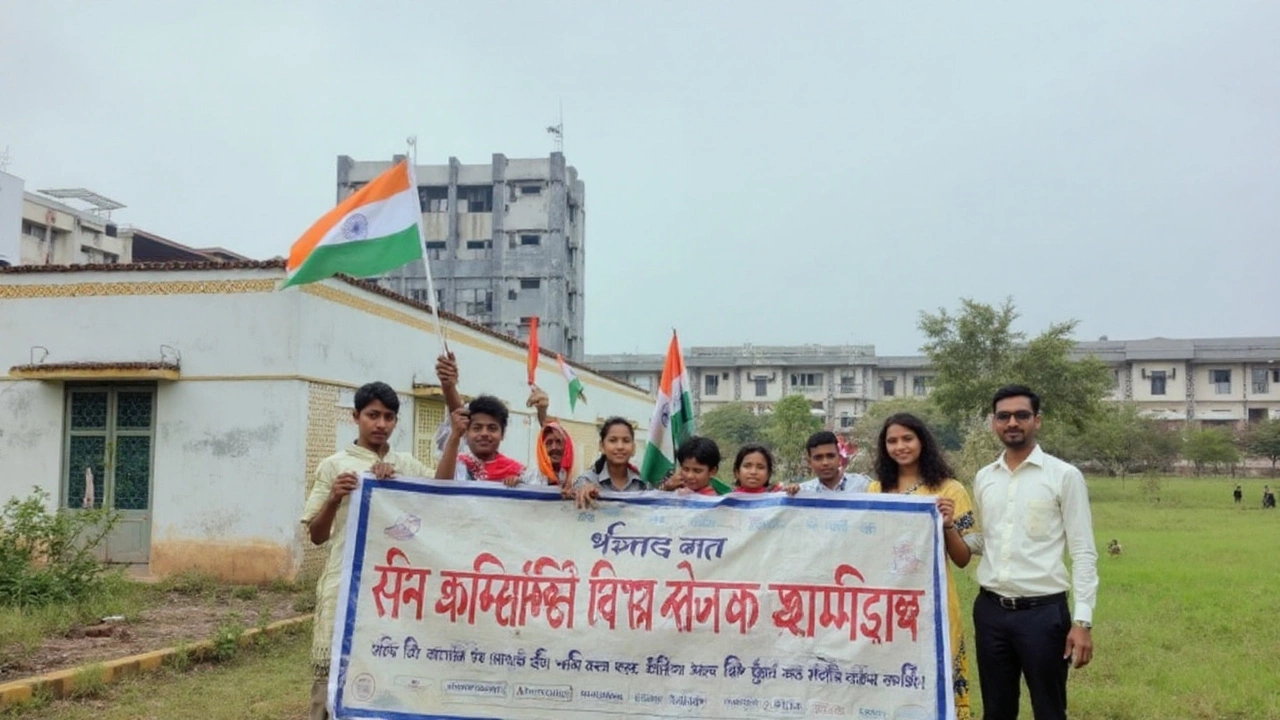A Look Back at the Kakori Train Action
When you try to picture defiance against colonial rule, the Kakori Train Action stands out as a gutsy move that rattled the British. On August 9, 1925, a group of young revolutionaries from the Hindustan Republican Association stopped a British government train near Kakori, just outside Lucknow. Their plan was bold: seize the government’s treasury on board to buy arms for the freedom fight. Ram Prasad ‘Bismil’, Ashfaqulla Khan, Rajendra Lahiri, and Chandra Shekhar Azad led the charge. The incident grabbed attention across the country and lit a fire under the independence movement, though it came at a steep cost. Several leaders were arrested, and by late 1927, Bismil, Ashfaqulla Khan, Roshan Singh, and Lahiri were hanged. Their sacrifice turned them into legends.
Fast-forward a hundred years and their story is impossible to ignore. Uttar Pradesh, under Chief Minister Yogi Adityanath, pulled out all the stops for the centenary—think processions, school competitions, rallies, and garden dedications—all designed to do justice to the revolutionary spirit that shook the Empire.
Centenary Events Flood the State With Color and Patriotism
The anniversary wasn’t just a look backward—it flooded the present with pride and patriotism. The state’s Culture Department launched festivities with a ‘Prabhat Pheri’, where locals joined in morning rallies riding motorcycles and singing patriotic songs. The energy didn’t stop there—exhibitions told the story of the movement, while tree plantation drives sprouted up as living memorials.
Kakori became the main stage for homage. Around 300 school kids brought traditions alive, reciting poetry and singing about the heroes who gave their all. The families of freedom fighters were invited and honored by the administration. The Forest Department pitched in by setting up ‘Shaheed Smriti Vatika’—but these aren’t just ordinary gardens. Each one pays tribute to martyrs in a different district, giving every community a space to remember.
The action wasn’t limited to Kakori. In Kanpur, students turned their schools into a sea of tricolour with rangoli and art. A morning march kicked off in each school yard, with kids belting out classics that would make any patriot proud. Then came the fun stuff: essay contests, debates, calligraphy, and even making rakhis and thank-you cards for soldiers and police. Winners from all these events got to soak up the limelight in Bithoor’s Nana Rao Park during a special prize ceremony.
One signature moment was the ‘Shaheed Smriti Yatra’, a 100-strong cycling procession covering key historical sites tied to the movement. The biggest readers and writers weren’t left out—Kakori hosted a literature festival, with new book launches, dramatic performances, and historians sharing stories that bring archives to life. To make sure nobody misses out, rare books on the revolution got a digital upgrade, ready for a new generation to explore.
Across Uttar Pradesh, the beats of drum, chants of freedom, and waves of tricolour reached every corner. Instrumental versions of the National Anthem echoed from martyrs’ memorials on the eve of the main event. With Chief Minister Yogi Adityanath expected at the grandest celebration at the Kakori memorial, state leaders made sure every detail felt worthy of those who put everything on the line a century back.
Beyond celebration, the centenary is shaping up to be a masterclass in how to connect young people to their roots. Schools used essays and debates to nudge kids into the shoes of the Kakori heroes, encouraging them to think about sacrifice, courage, and what it means to demand freedom. With the Martyrs’ Memorial Gardens, literary festivals, and digital archives, the story of Kakori is now in the hands—and hearts—of today’s generation.
